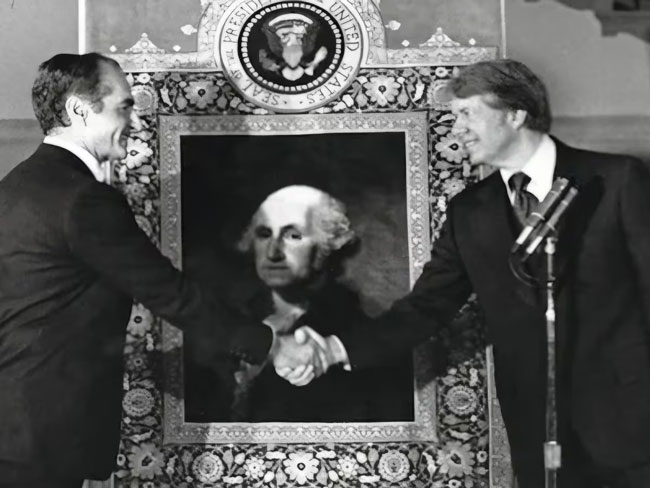Tensions in the Middle East have reached a peak as Iran launched over 200 missiles, including hypersonic weapons, at Israel on Tuesday. In response, Israel has vowed that Iran will pay for this attack. However, the relationship between the two nations hasn’t always been hostile. While it may seem unimaginable today, there was a time when Israel and Iran, with U.S. support, joined hands to fight a common enemy. In the 1960s, both Israel and Iran faced a shared threat: Iraq. While Israel was entangled in conflicts with Arab nations, Iraq posed a direct security threat to Iran, which was then under the rule of the Shah. This situation laid the groundwork for what would become one of the most secretive partnerships in history.
The Mossad and SAVAK Alliance
This partnership involved Israel’s intelligence agency, Mossad, and Iran’s secret police, SAVAK. Both agencies played key roles in strengthening Kurdish rebels against the Iraqi regime. The Kurds, seen as a weakness within Iraq’s Arab leadership, were critical to undermining the government from within. Following the creation of a covert intelligence alliance, codenamed Trident, the relationship between Israel and Iran reached new heights, with Turkey also being a part of this trio. By 1958, through the Trident alliance, these three nations began sharing critical intelligence. As the partnership matured, Israel and Iran grew even closer.
Shah’s Ambitions and Israel’s Influence
The Shah of Iran, Mohammad Reza Pahlavi, was not only driven by shared geopolitical interests but also by Israel’s influence in the United States. The Shah viewed Israel as a tool to improve relations with the U.S., especially after the Kennedy administration raised concerns about his regime. The Israeli-Iranian relationship became a strategic part of Iran’s efforts to align itself with the West. By the mid-1960s, a permanent Israeli delegation had been established in Tehran, functioning as a de facto embassy. However, there were complexities in this relationship. The Shah was aware of the widespread anti-Israel sentiment in the Arab world and publicly denied Iran’s ties with Israel.
Joint Efforts Against Iraq
The Islamic Revolution of 1979 drastically altered Iran’s political landscape, transforming it into an anti-Israel Islamic republic. Yet, even after Ayatollah Khomeini came to power, secret collaboration with Israel continued. As the Iran-Iraq War (1980-1988) progressed, both nations saw mutual benefit in working against Saddam Hussein’s Iraq. Israel saw an opportunity to assist Iran. With both the U.S. and the Soviet Union supplying the Iraqi military, Israel’s decision to send arms to Iran, particularly after Prime Minister Menachem Begin approved the sale of military equipment in 1980, was a calculated move to weaken Iraq. These covert arms deals were conducted despite U.S. policy, which banned military aid to Iran until the release of American hostages in Tehran. In exchange for Israeli military assistance, Khomeini’s regime allowed a significant number of Iranian Jews to emigrate to Israel or the U.S.
Operation Flower
The Israeli-Iranian partnership went beyond traditional arms deals. One of the most ambitious plans was “Operation Flower,” a secret, multi-million-dollar project launched in 1977 during the Shah’s reign. According to a 1986 New York Times report, Iran had sent Israel $260 million worth of oil as an advance payment by 1978. Work on the missile program continued until the Islamic Revolution in 1979, after which Khomeini’s regime abruptly halted the cooperation. However, in October 1980, when Iran launched a war against Iraq, Israel secretly supplied Iran with 250 additional tires for U.S.-made F-4 fighter jets.
The Start of Hostility
By the 1990s, the era of cooperation between Israel and Iran had ended. Geopolitical factors, such as Arab socialism, Soviet influence, and the threat of Iraq, which had once united the two nations, had disappeared, leaving little reason to maintain cooperation. Following this, Iran adopted an anti-Israel ideology, supporting groups like Hezbollah and Hamas in their struggle against Israel. The election of Iranian President Mahmoud Ahmadinejad in the early 2000s, along with his Holocaust denial and aggressive rhetoric against Israel, further escalated tensions. Since then, Iran has become Israel’s primary adversary in the region, and the two nations now find themselves on the brink of war.




